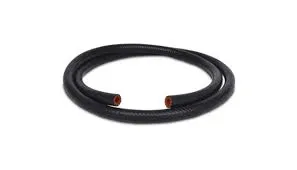Enhancing Engine Performance with Efficient Fuel Injection Tubes for Optimal Efficiency
Nov . 28, 2024 01:23 Back to list
Enhancing Engine Performance with Efficient Fuel Injection Tubes for Optimal Efficiency
Understanding Fuel Injection Tubes The Heart of Modern Automotive Systems
Fuel injection tubes are vital components of modern fuel delivery systems found in vehicles. Their primary function is to deliver the precise amount of fuel into the combustion chamber, ensuring efficient engine performance and reduced emissions. As automotive technology advances, the role and design of fuel injection tubes have evolved significantly, playing a crucial role in enhancing the overall efficiency and reliability of engines.
The Role of Fuel Injection Tubes
At its core, a fuel injection tube is a conduit that transports fuel from the fuel rail to the fuel injectors. The design and material of these tubes are pivotal in maximizing fuel efficiency and minimizing harmful emissions. By ensuring a consistent and controlled flow of fuel, these tubes help maintain optimal air-fuel ratios in the engine, which is essential for effective combustion.
Fuel injection systems can be categorized into two main types port fuel injection (PFI) and direct fuel injection (DI). In PFI systems, fuel is injected into the intake manifold before entering the combustion chamber, whereas DI systems inject fuel directly into the combustion chamber under high pressure. Fuel injection tubes play an essential role in both systems, as they must withstand varying pressures and temperatures while maintaining integrity and performance.
Material Considerations
The materials used in constructing fuel injection tubes are critical for their performance and durability. Commonly, these tubes are made from high-grade metals such as stainless steel or specialized polymers that can withstand harsh conditions, including exposure to heat, pressure, and corrosive fuels. Additionally, the materials must maintain structural integrity over time to prevent leaks that could lead to catastrophic engine failures or safety hazards.
Importance of Design
fuel injection tube

The design of fuel injection tubes is equally important, as it can significantly impact the efficiency of the fuel delivery system. Features such as tube length, diameter, and wall thickness must be optimized for specific engine applications. Engineers use advanced computer-aided design (CAD) software and fluid dynamics simulations to create designs that enhance the performance characteristics of these tubes.
Moreover, modern fuel injection systems often require additional components, such as fuel filters and regulators, to be integrated with the fuel injection tubes. This integration helps ensure that only clean fuel reaches the injectors while maintaining the necessary pressure levels.
Advancements in Technology
As automotive manufacturers strive to meet stricter emissions regulations and improve fuel efficiency, advancements in fuel injection tube technology have gained momentum. The advent of multi-port fuel injection systems has allowed for better atomization of fuel, which improves combustion efficiency. Furthermore, innovations such as variable nozzle injectors and electronic control units (ECUs) enable real-time adjustments to the fuel delivery process, optimizing performance and fuel economy.
In addition to traditional gasoline engines, fuel injection tubes are also critical in alternative fuel systems, including those using natural gas and biofuels. The adaptability of these tubes to various fuel types showcases their versatility and importance in the evolving automotive landscape.
Conclusion
Fuel injection tubes are a fundamental component of modern engine technology. Their design, material selection, and overall functionality significantly influence engine performance, fuel efficiency, and emissions control. As the automotive industry continues to innovate and move towards more sustainable practices, the importance of fuel injection tubes will only increase. By ensuring the accurate delivery of fuel, these tubes not only contribute to the efficiency of today’s vehicles but also pave the way for future advancements in automotive technology, making them an integral part of ongoing efforts to achieve cleaner and more efficient transportation solutions.
